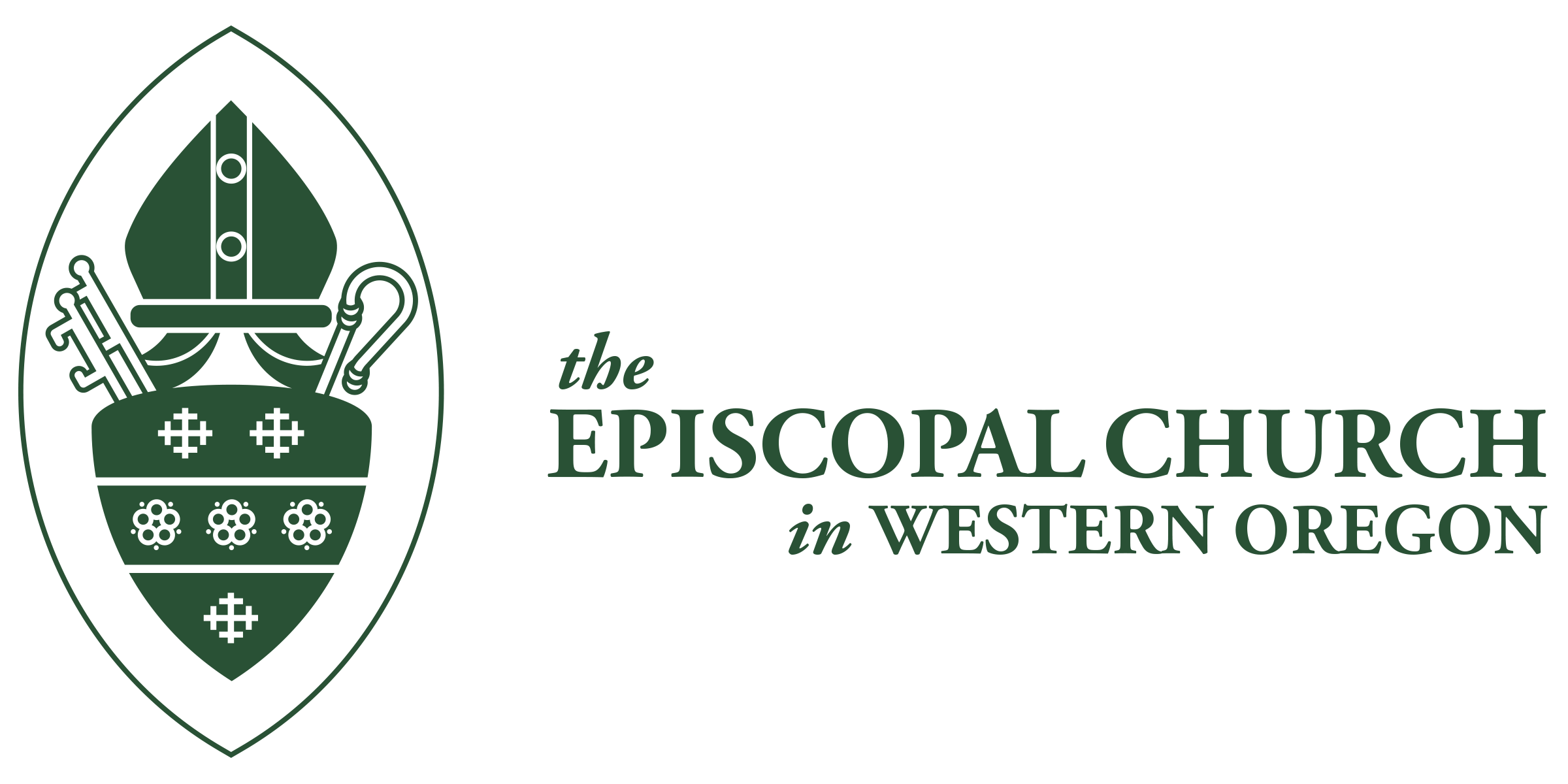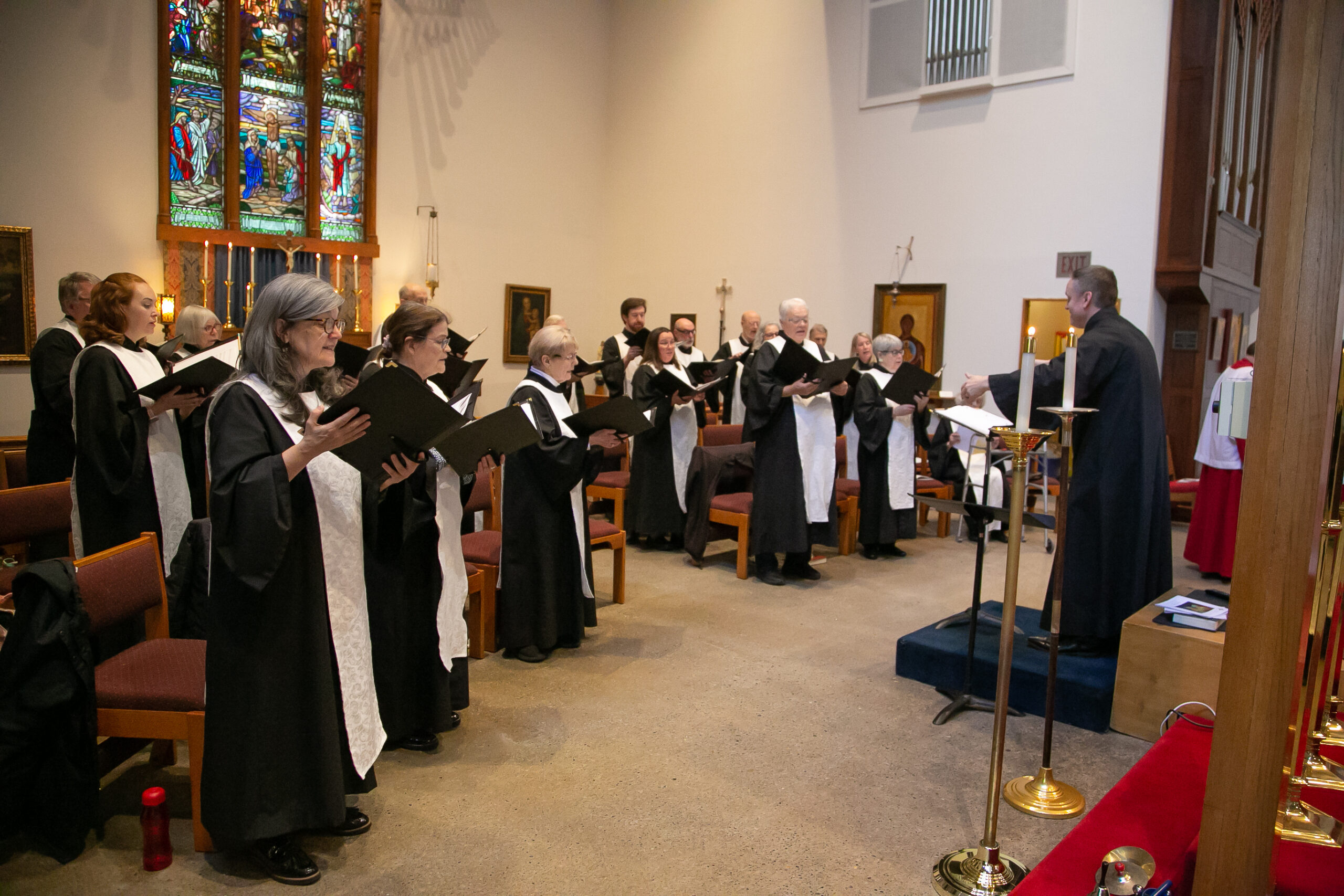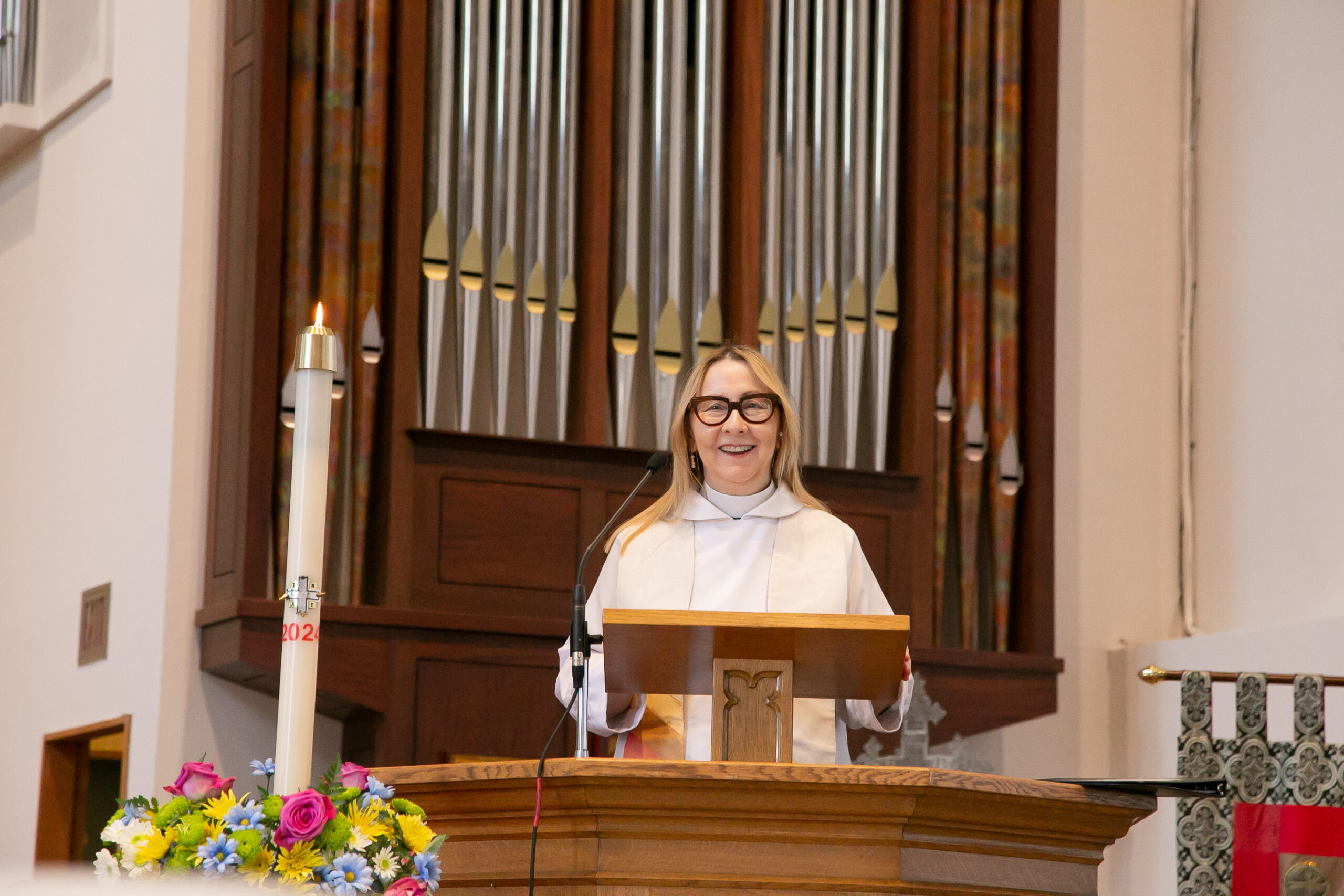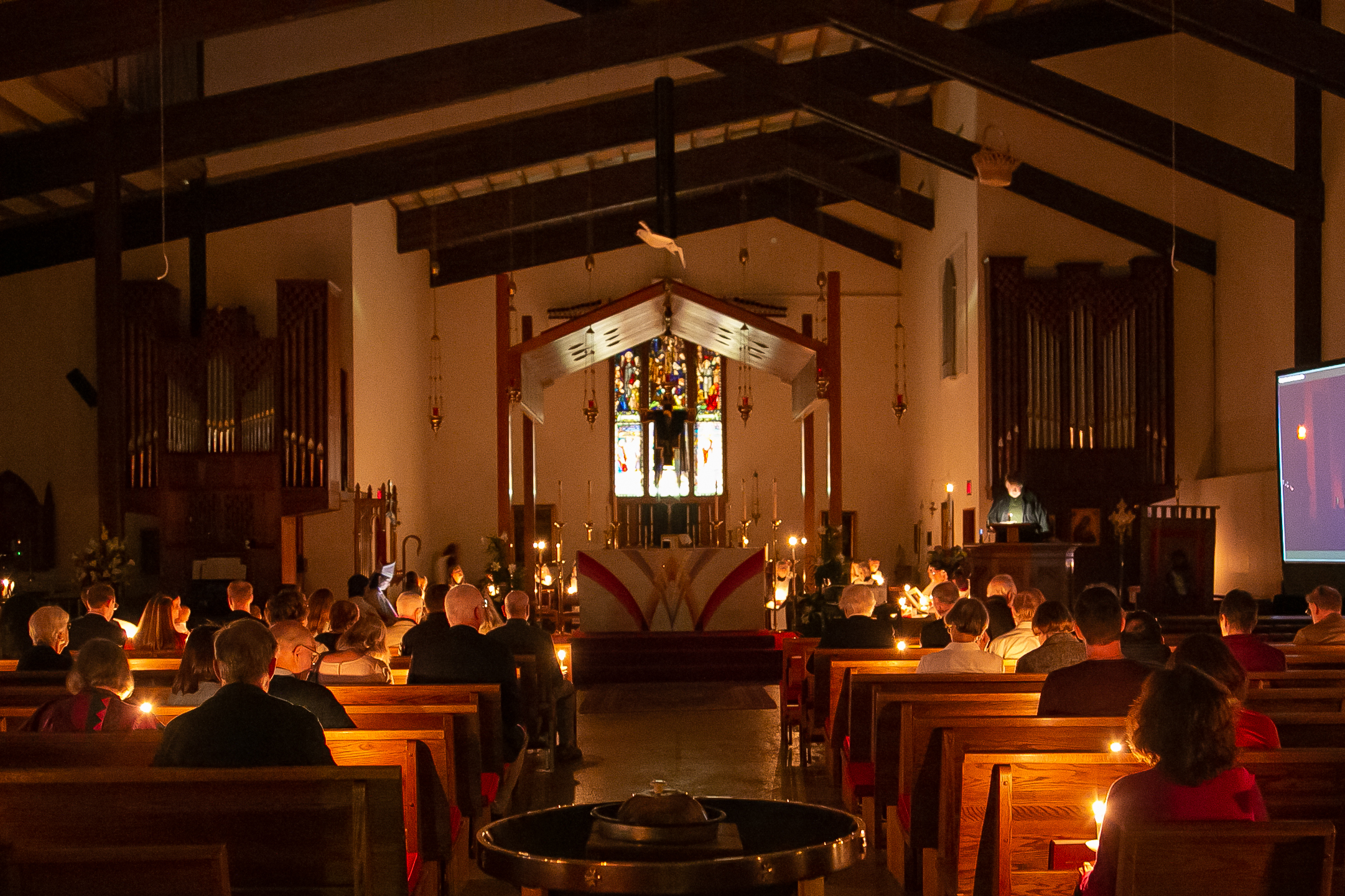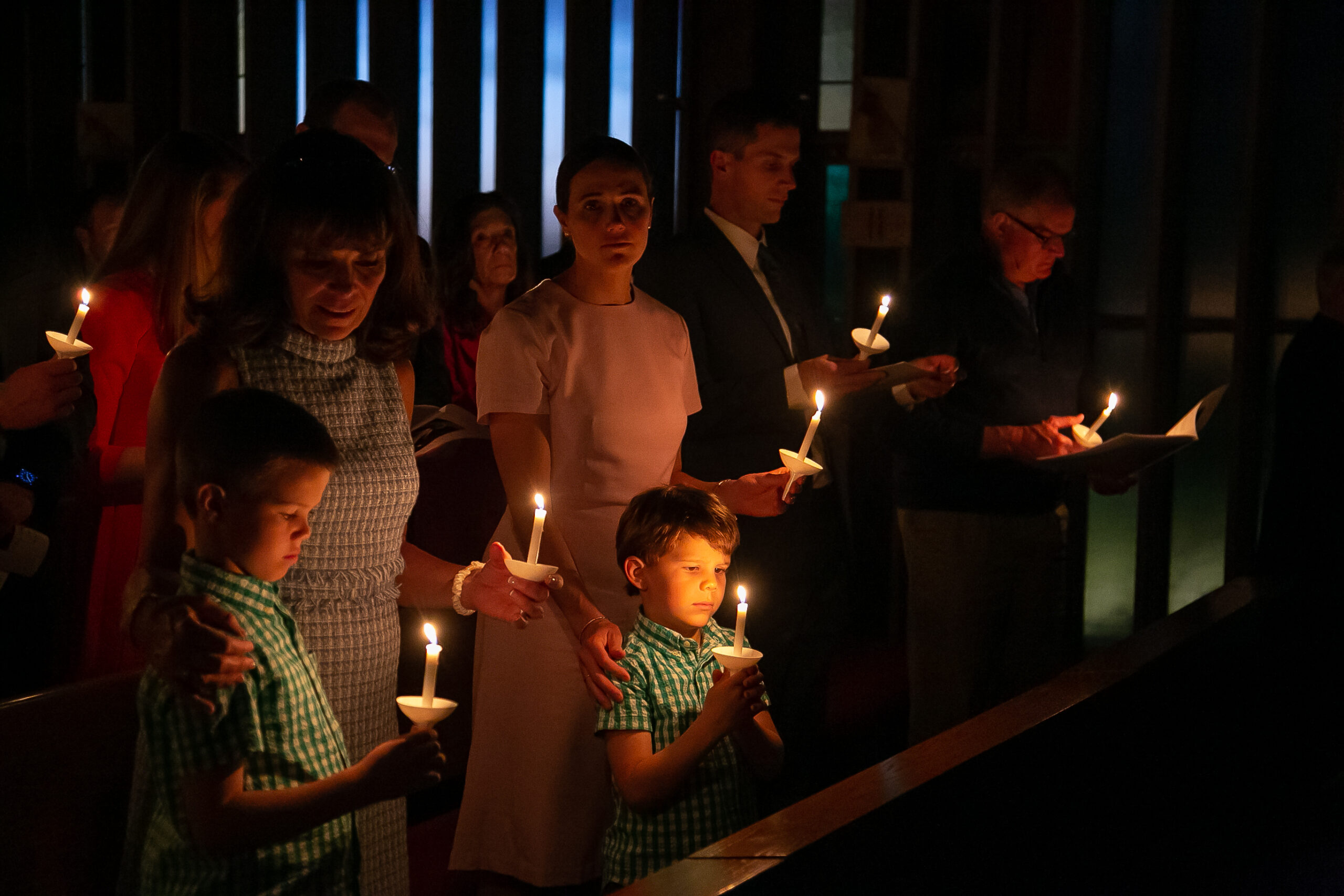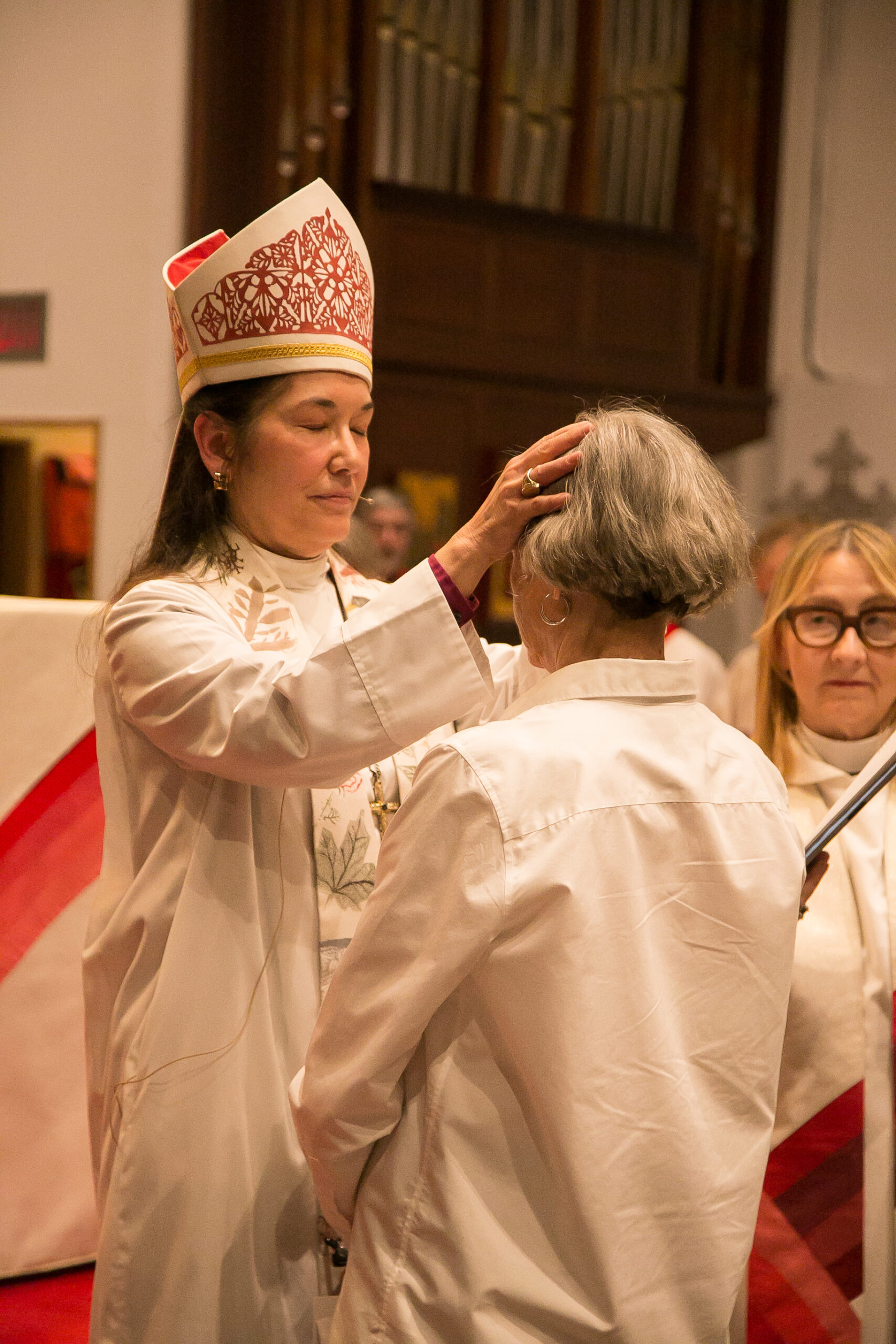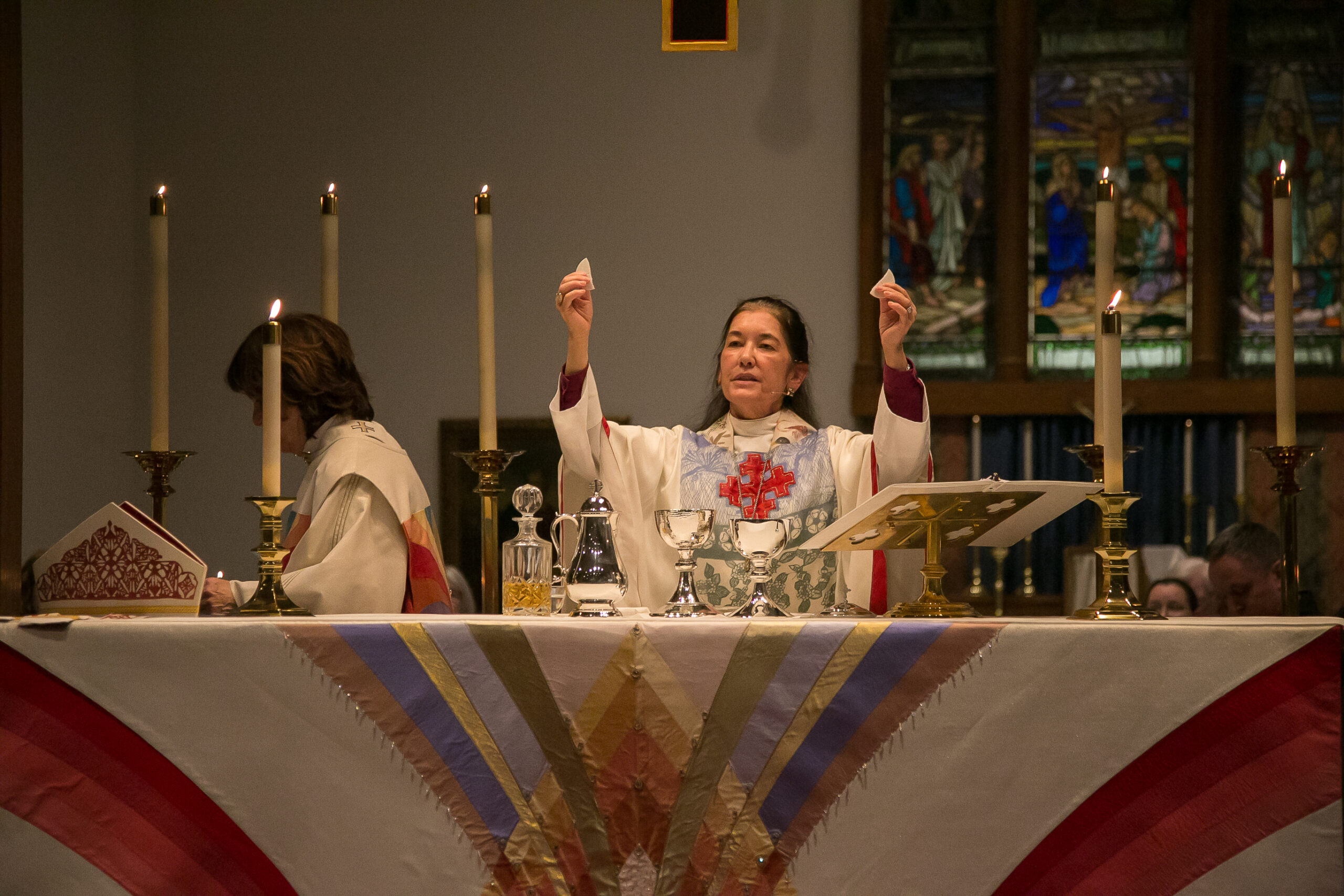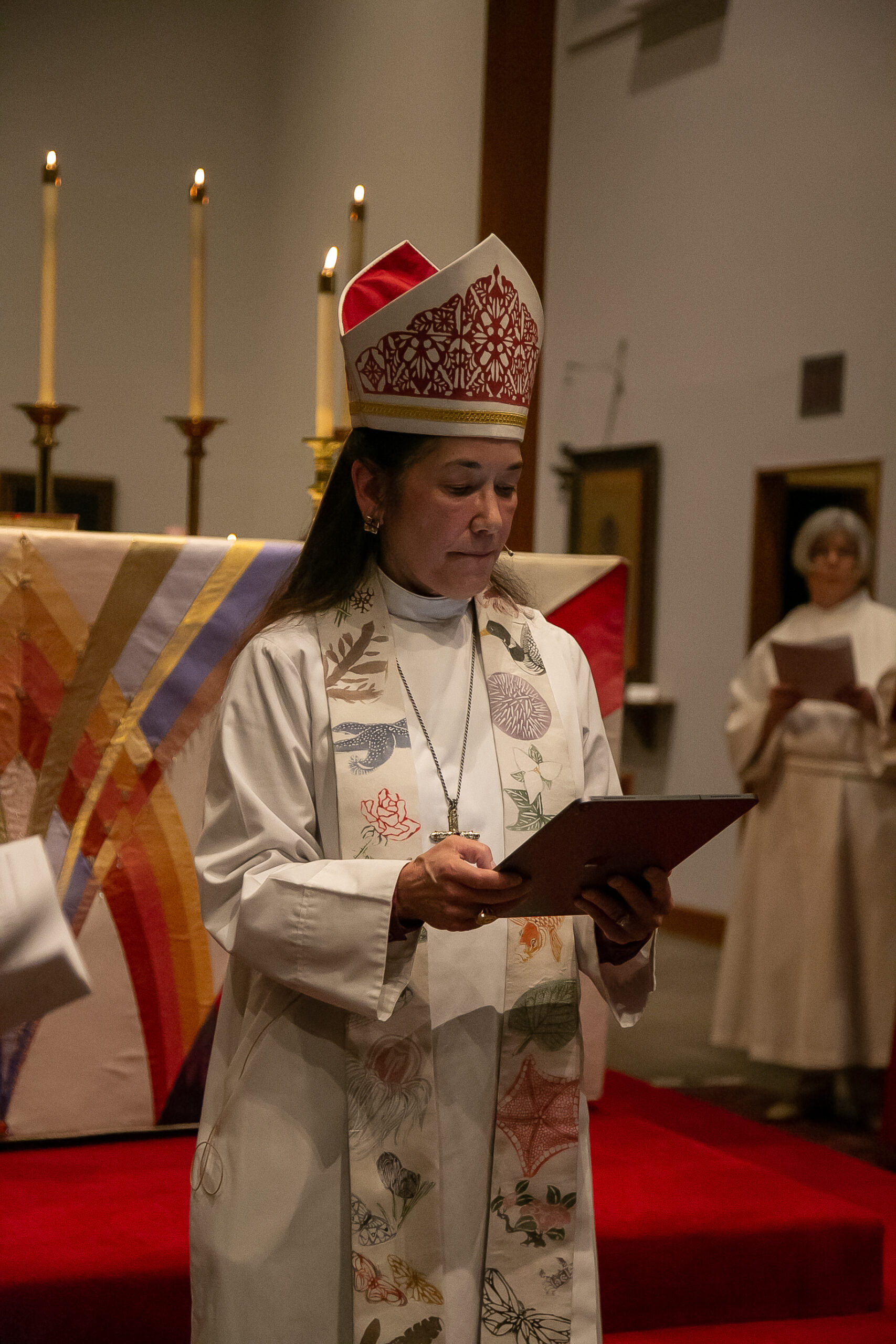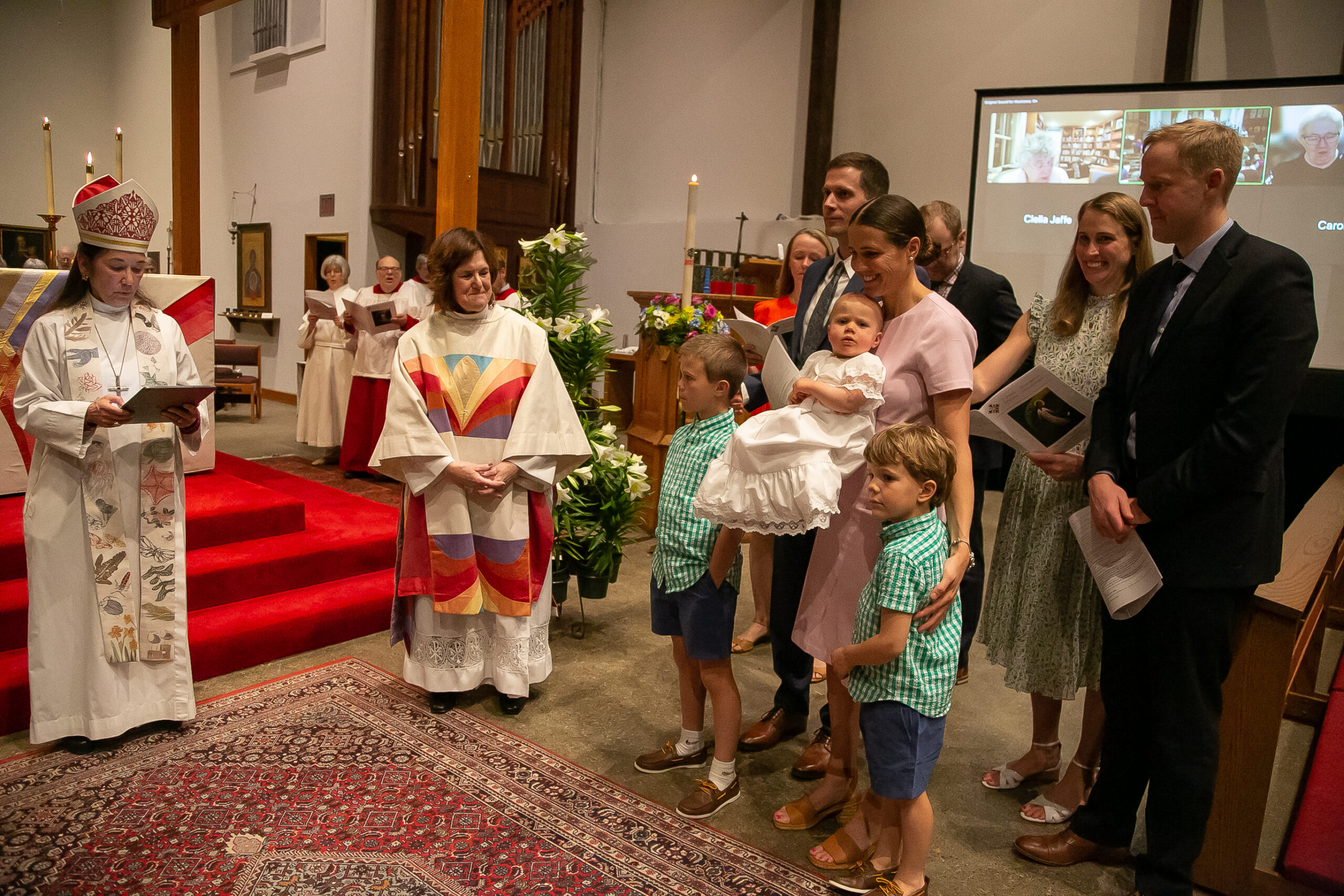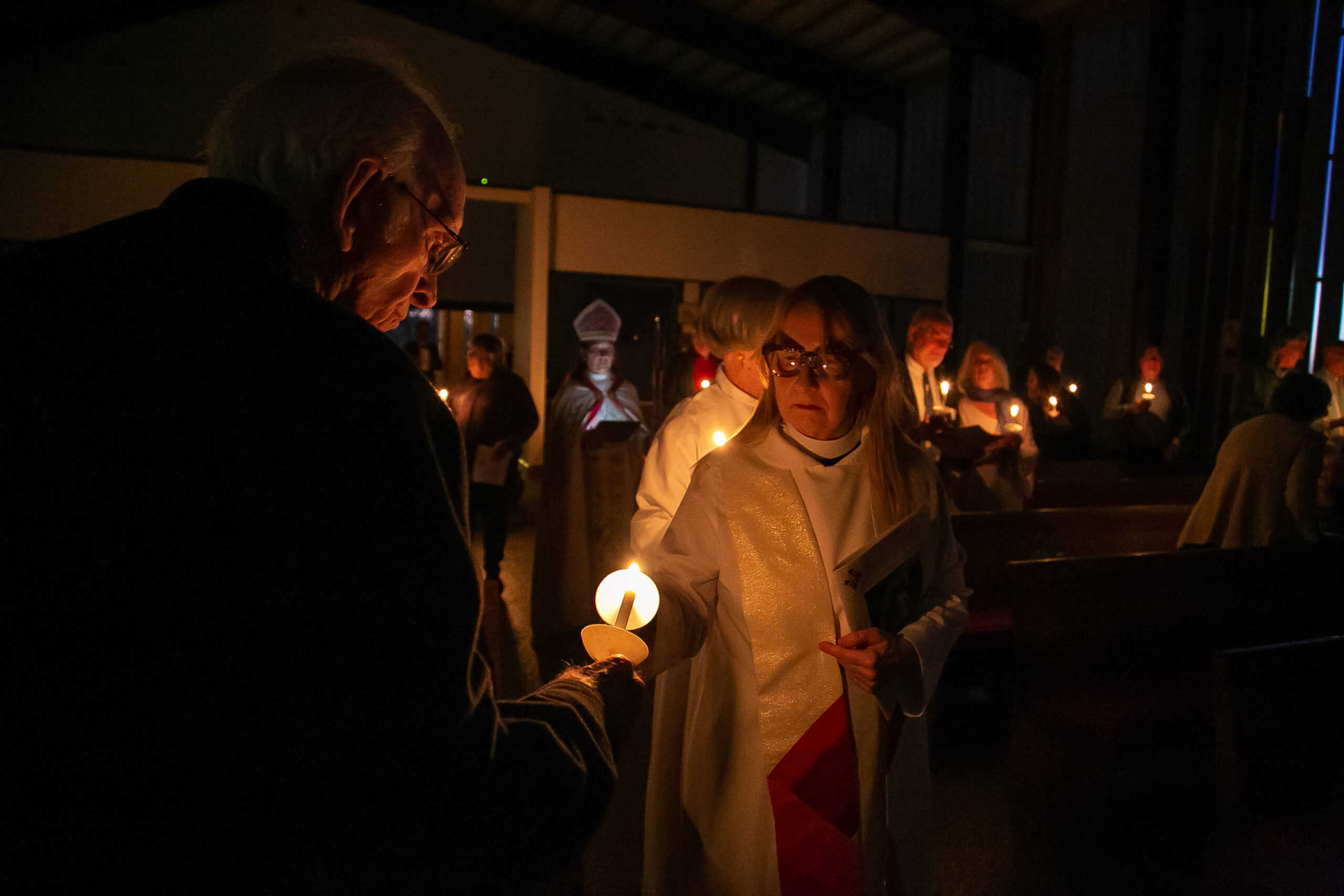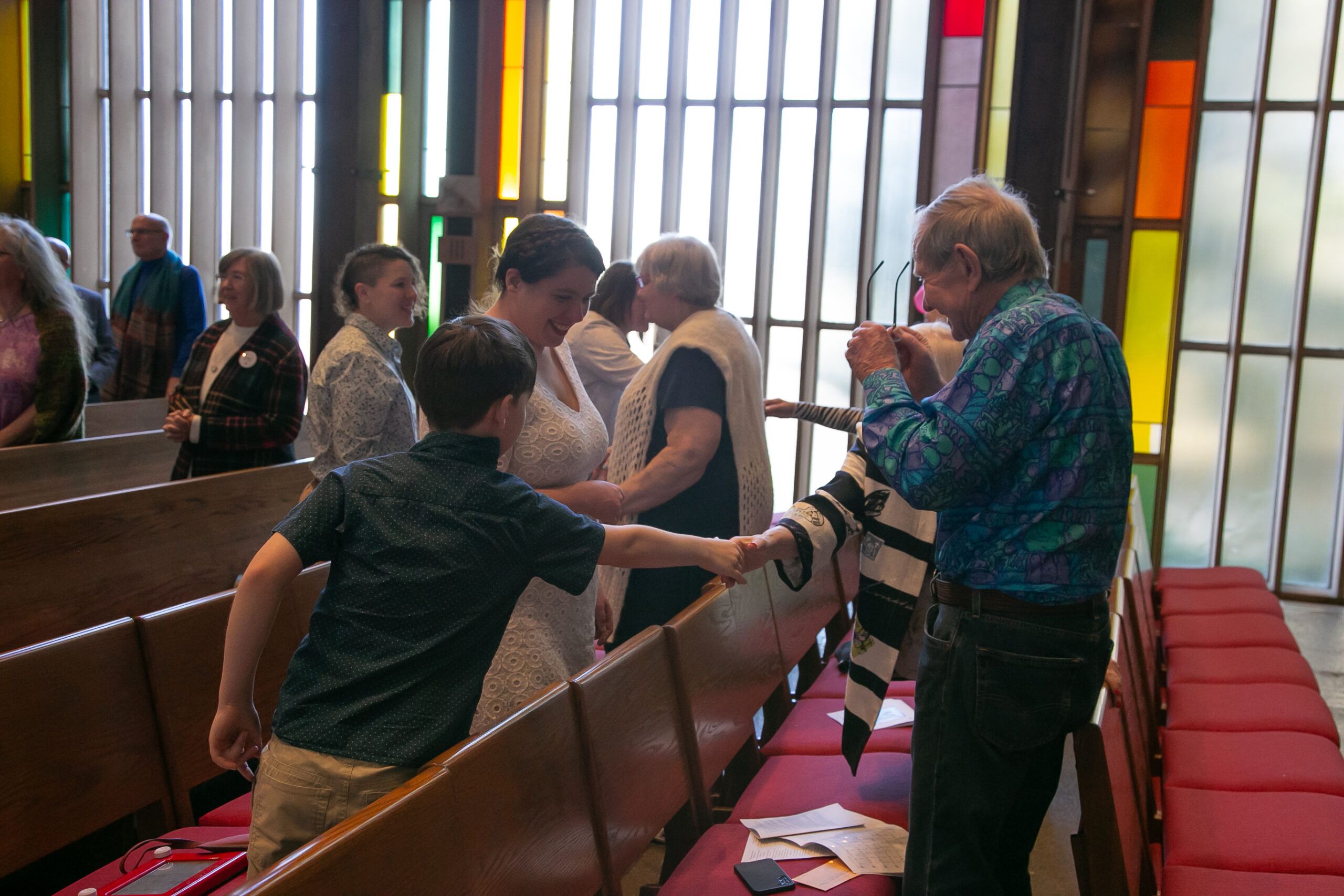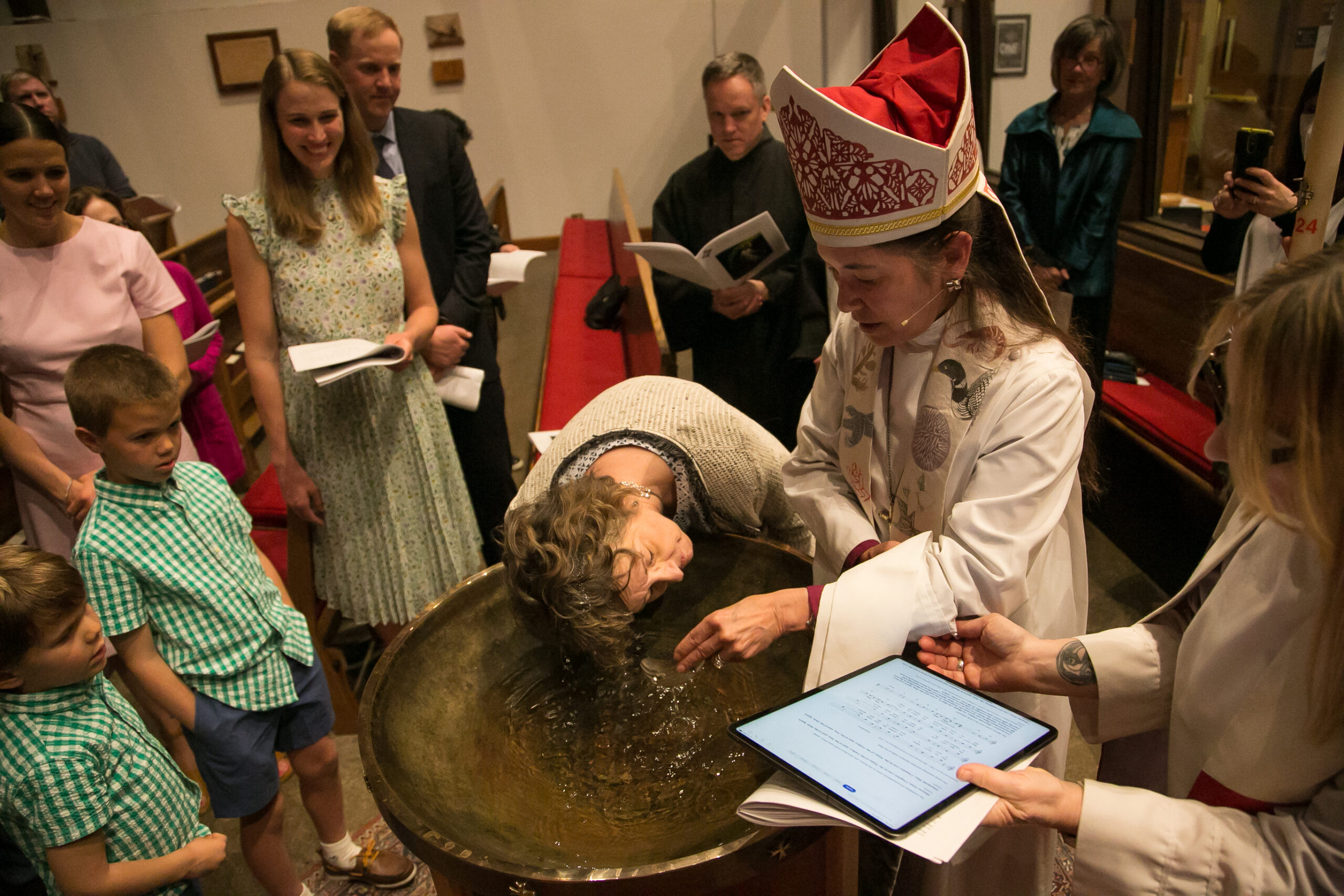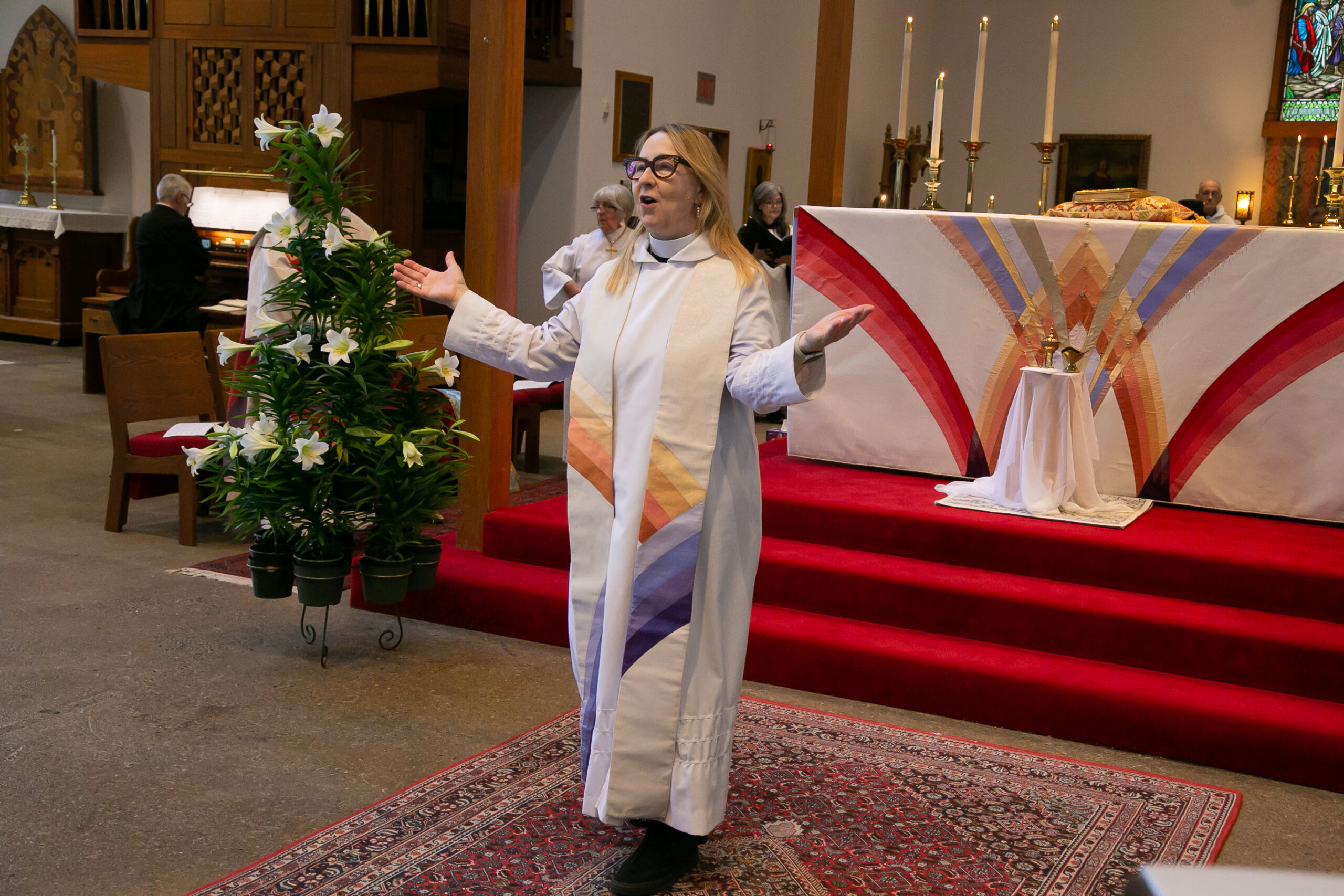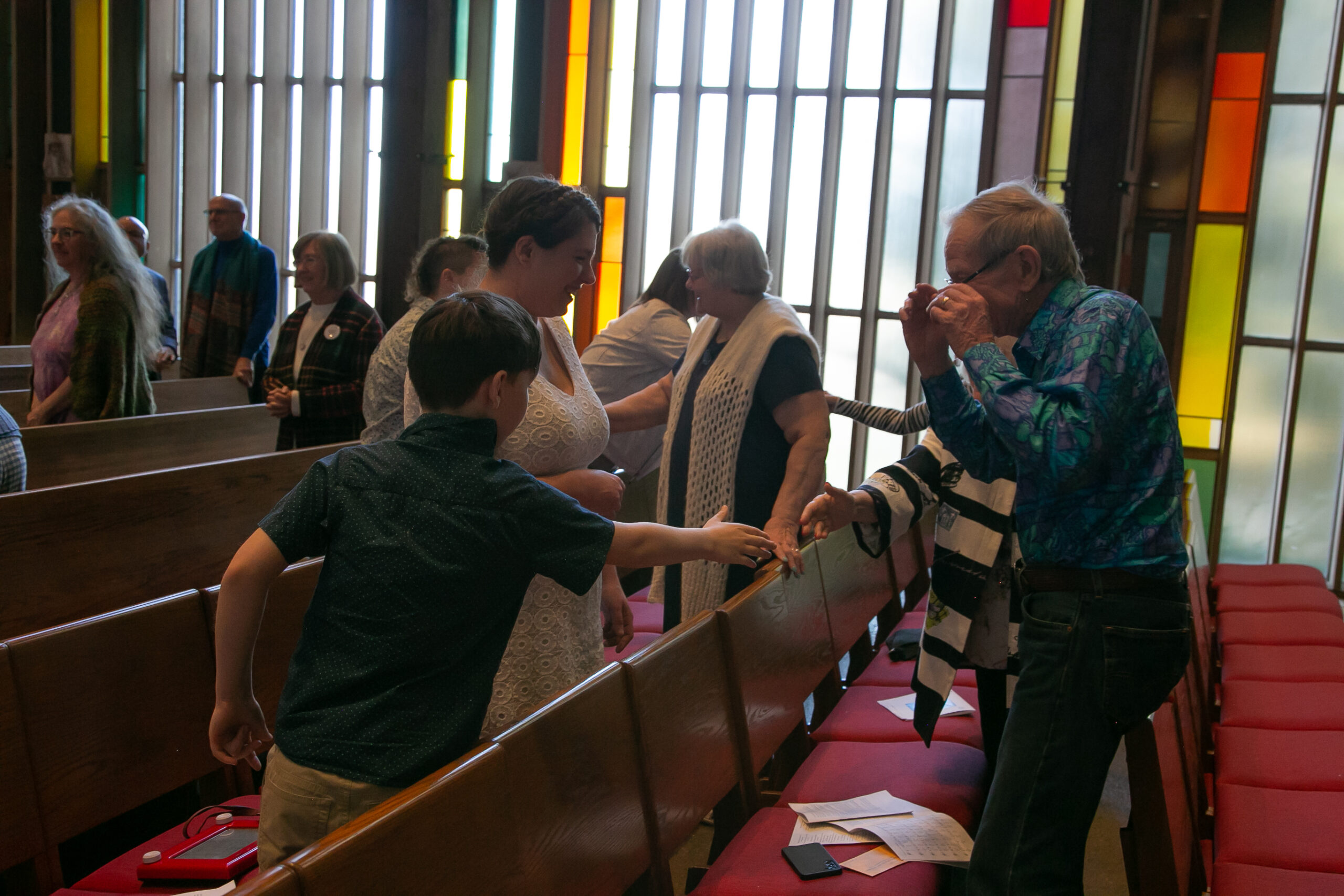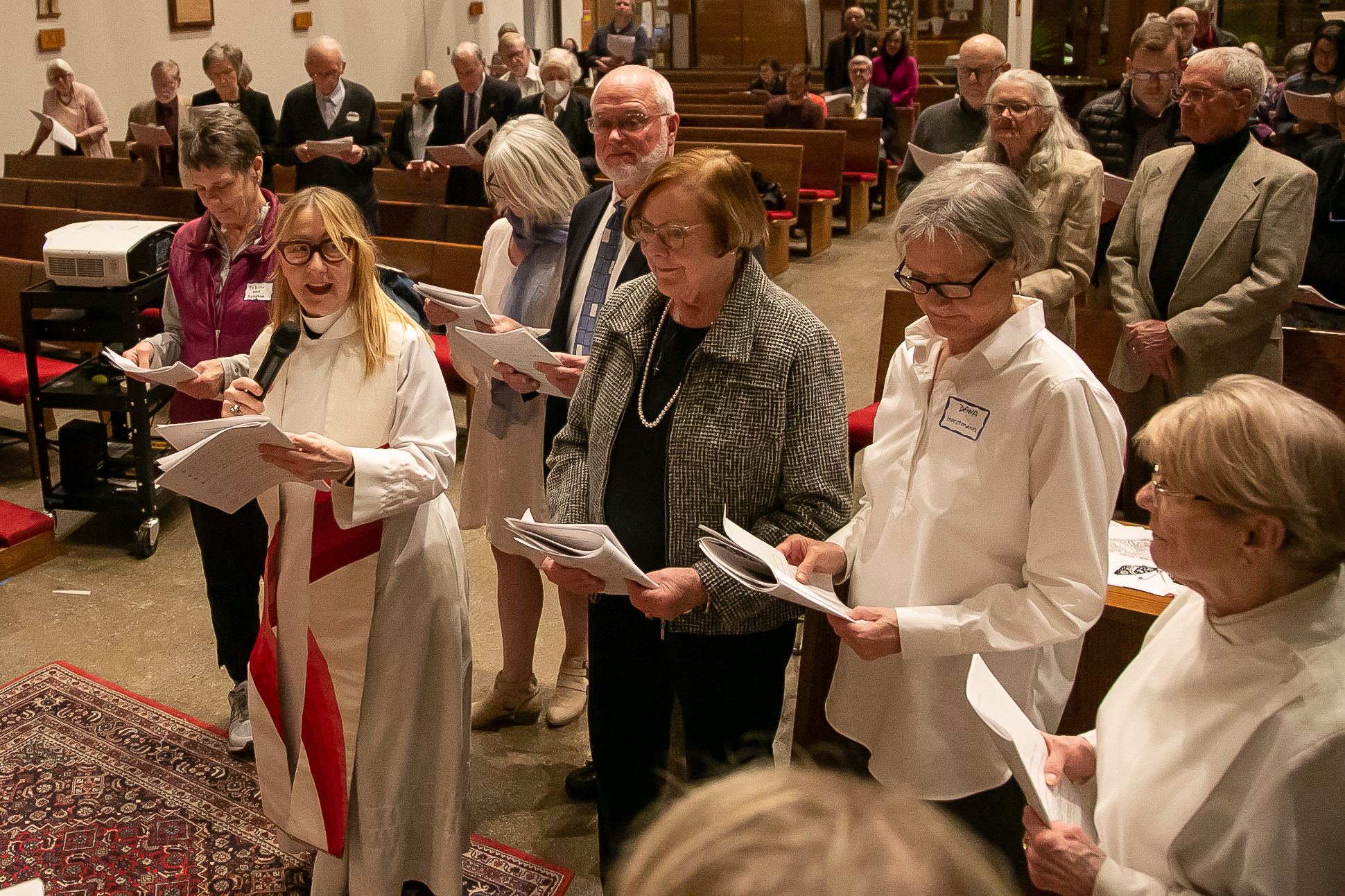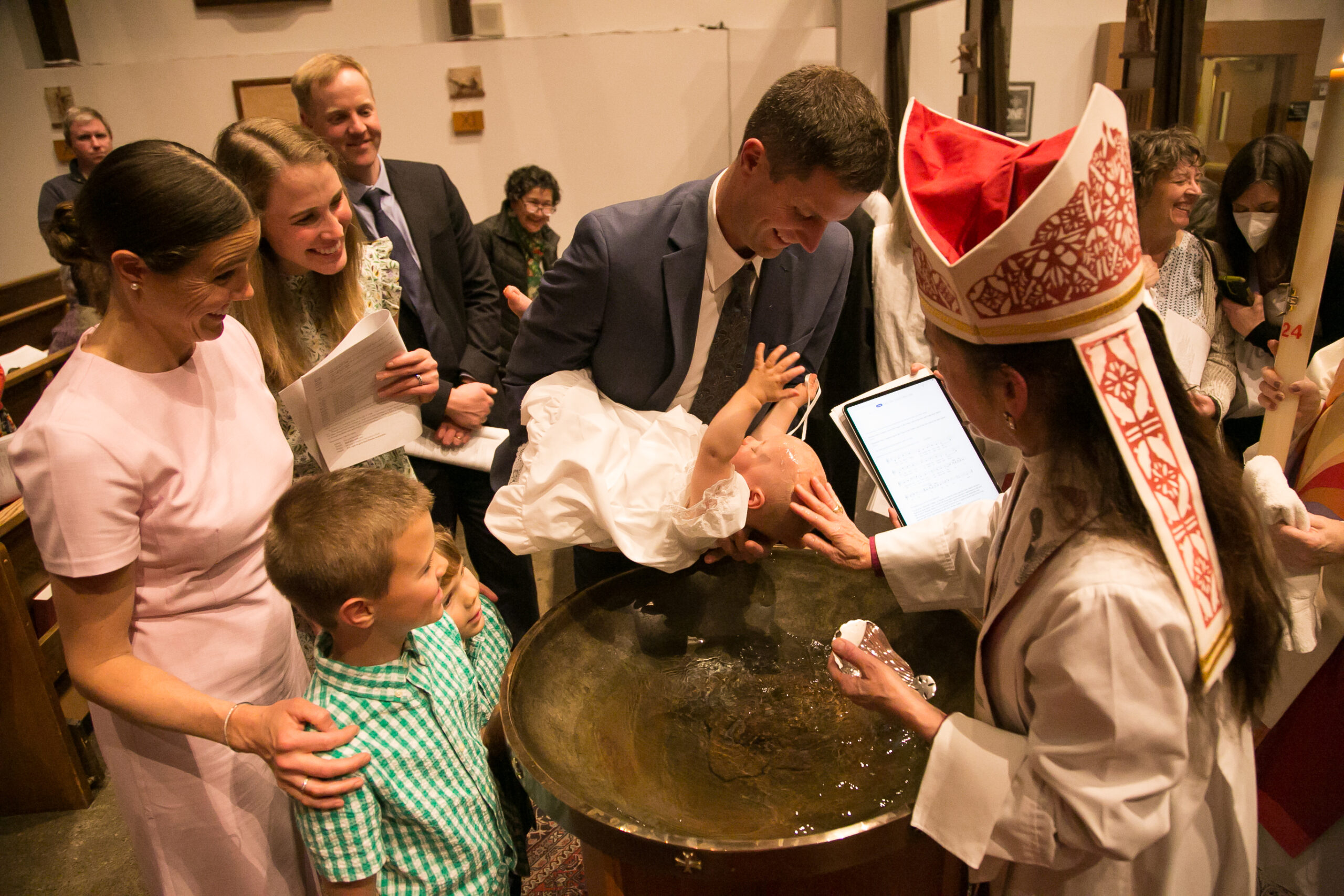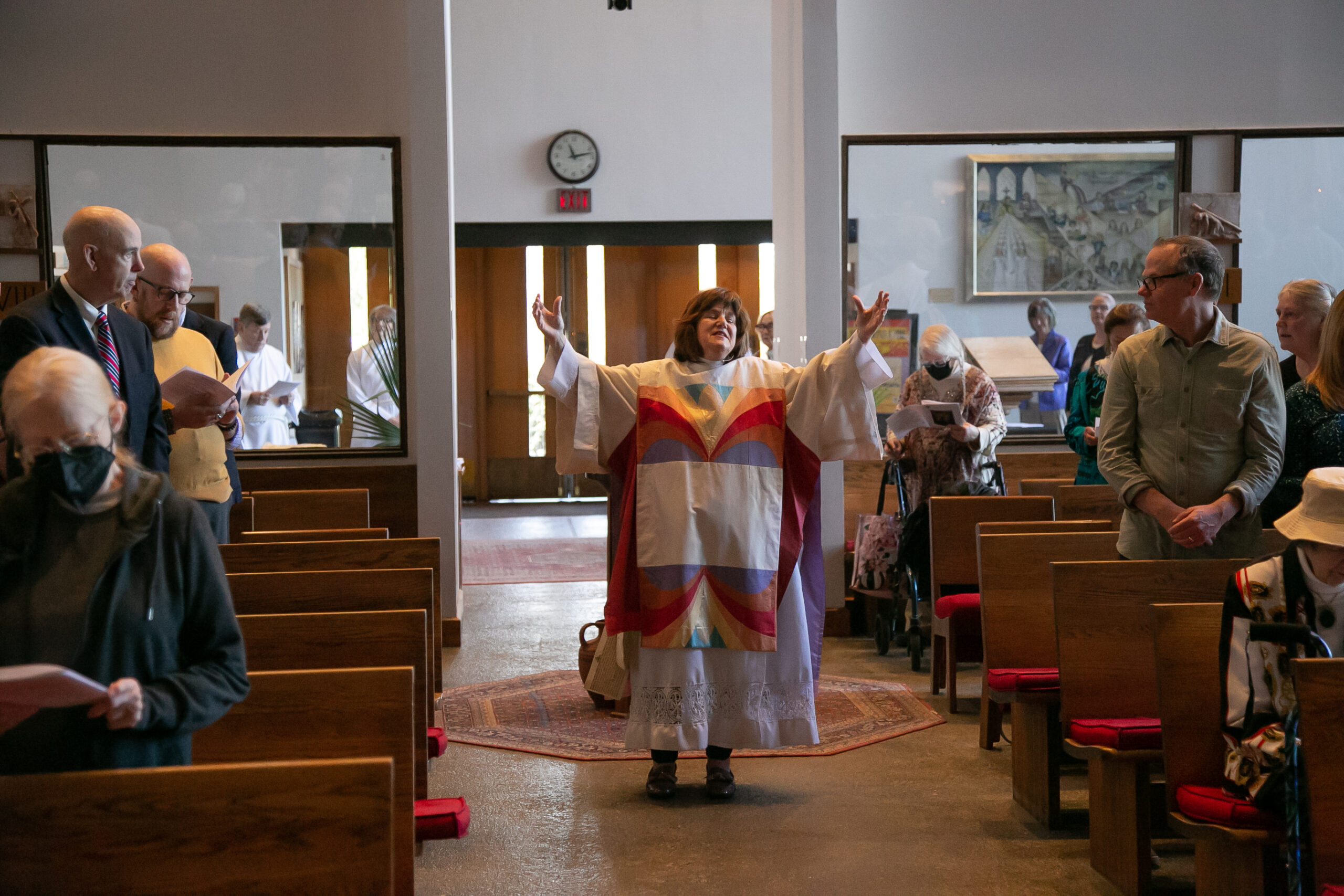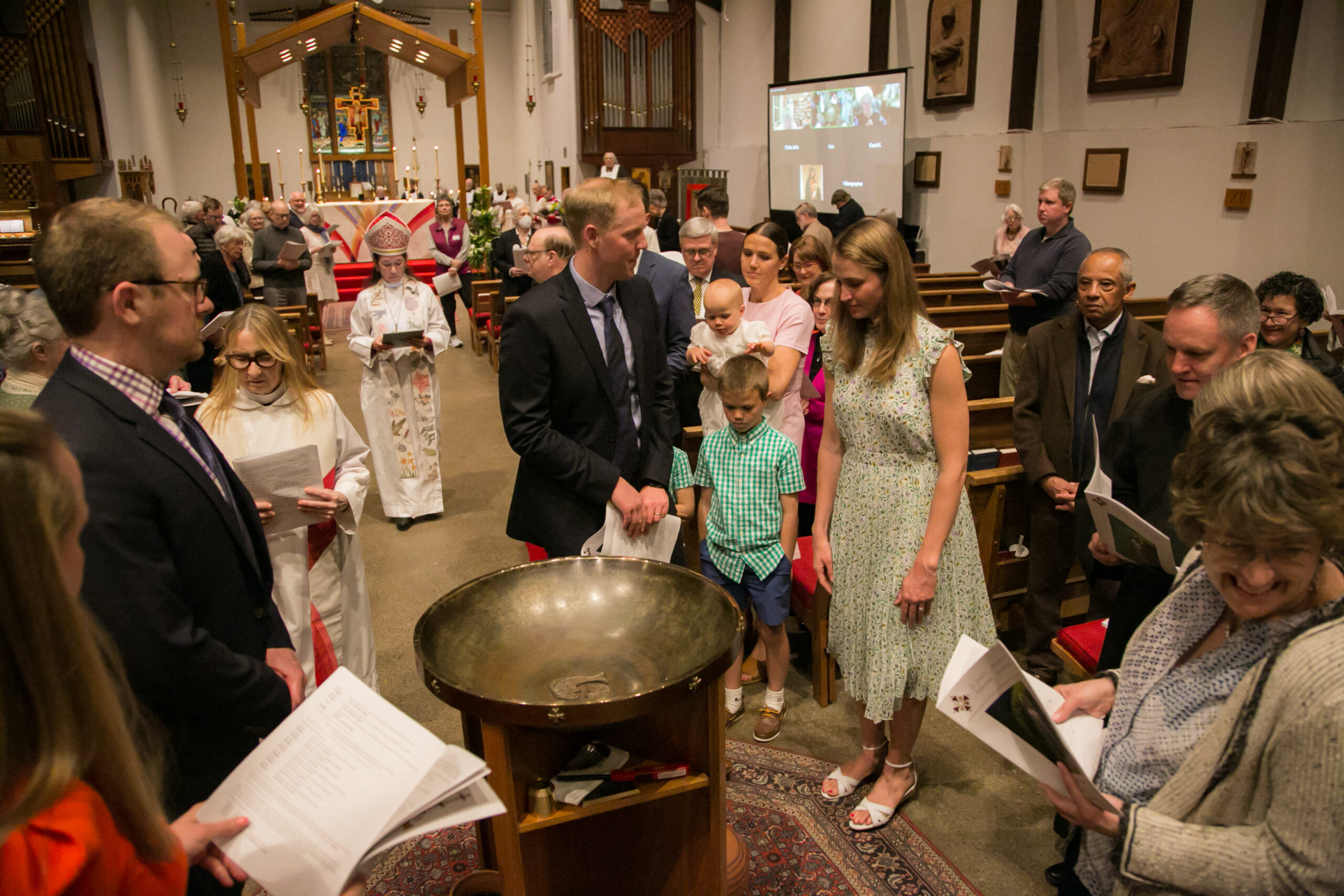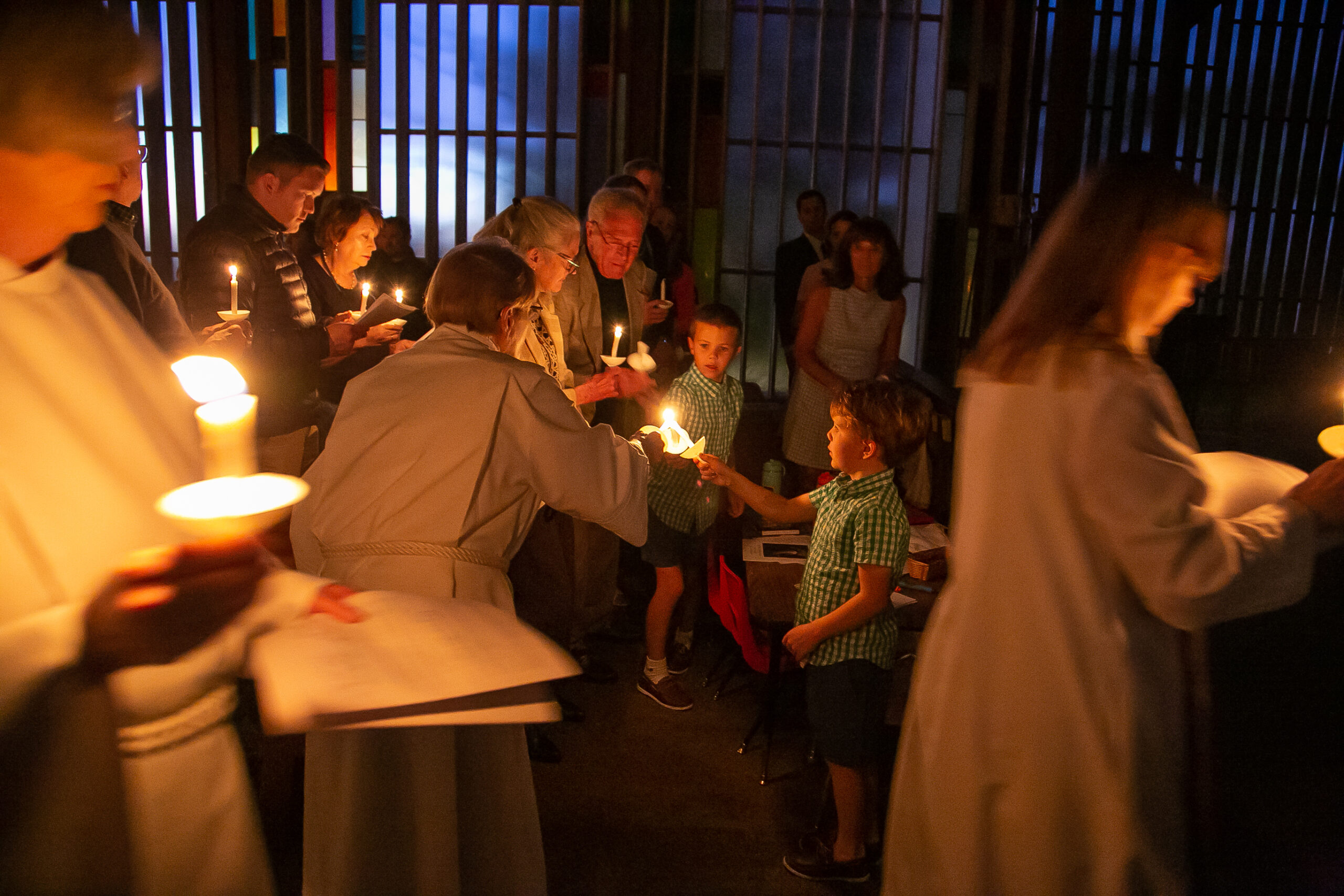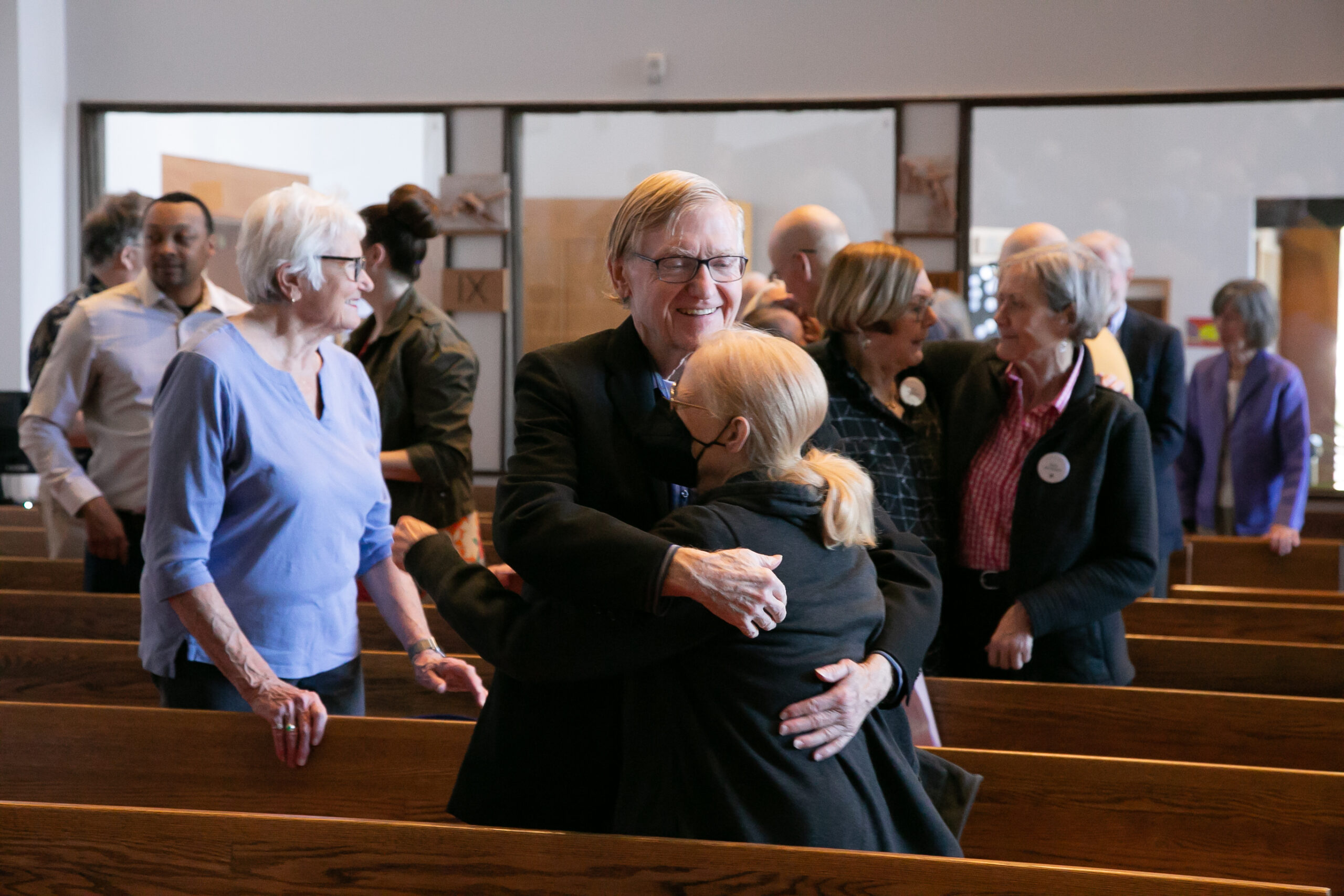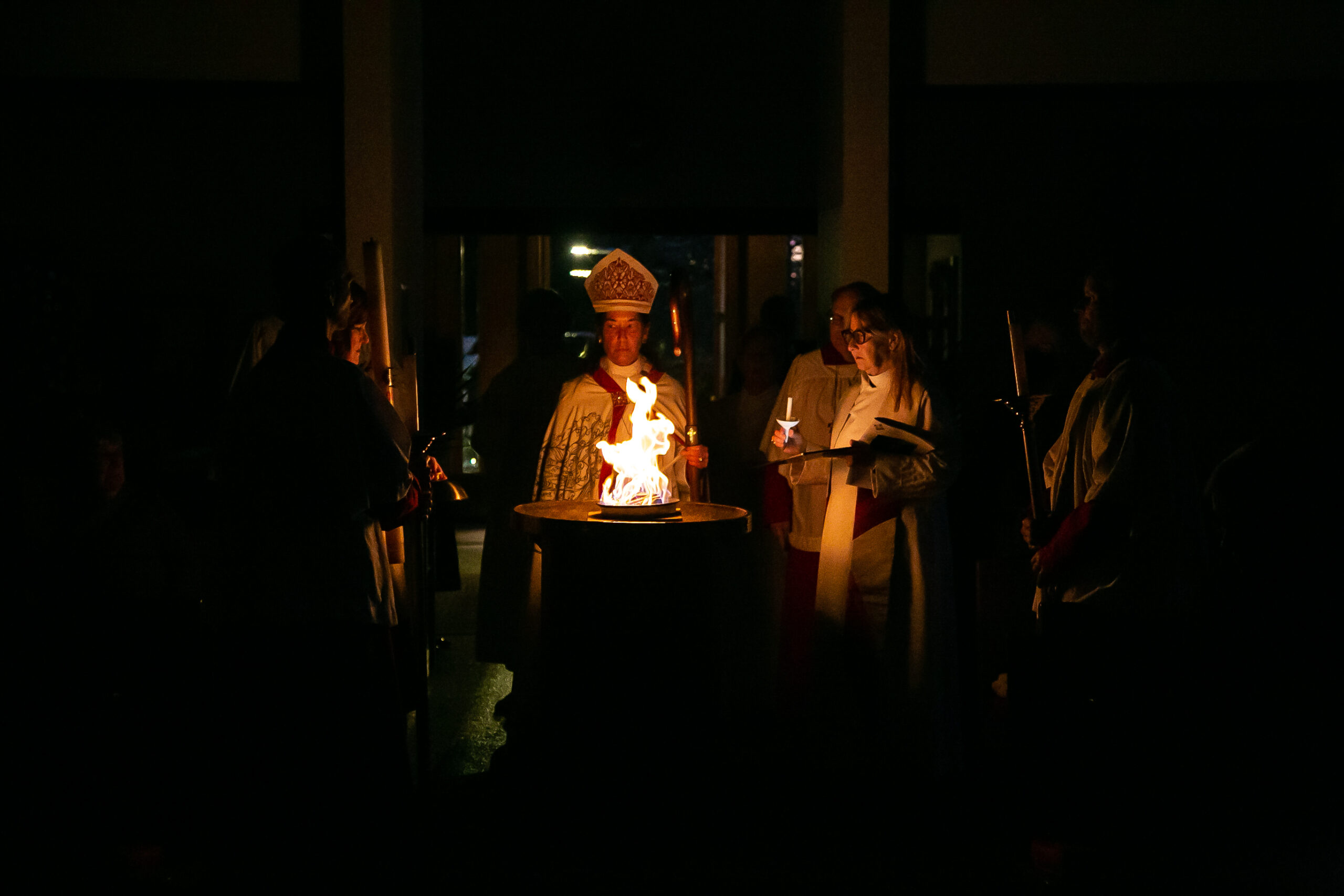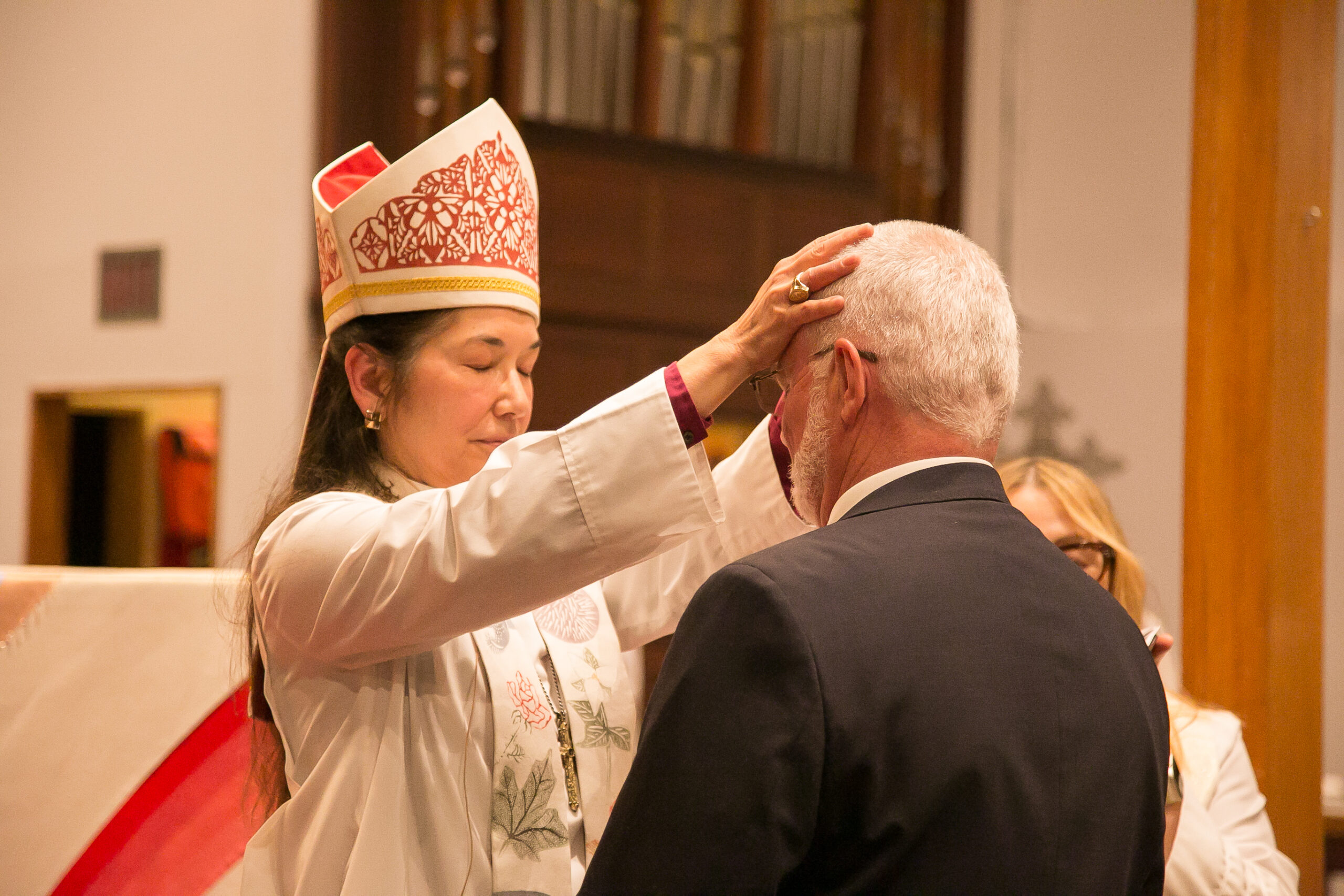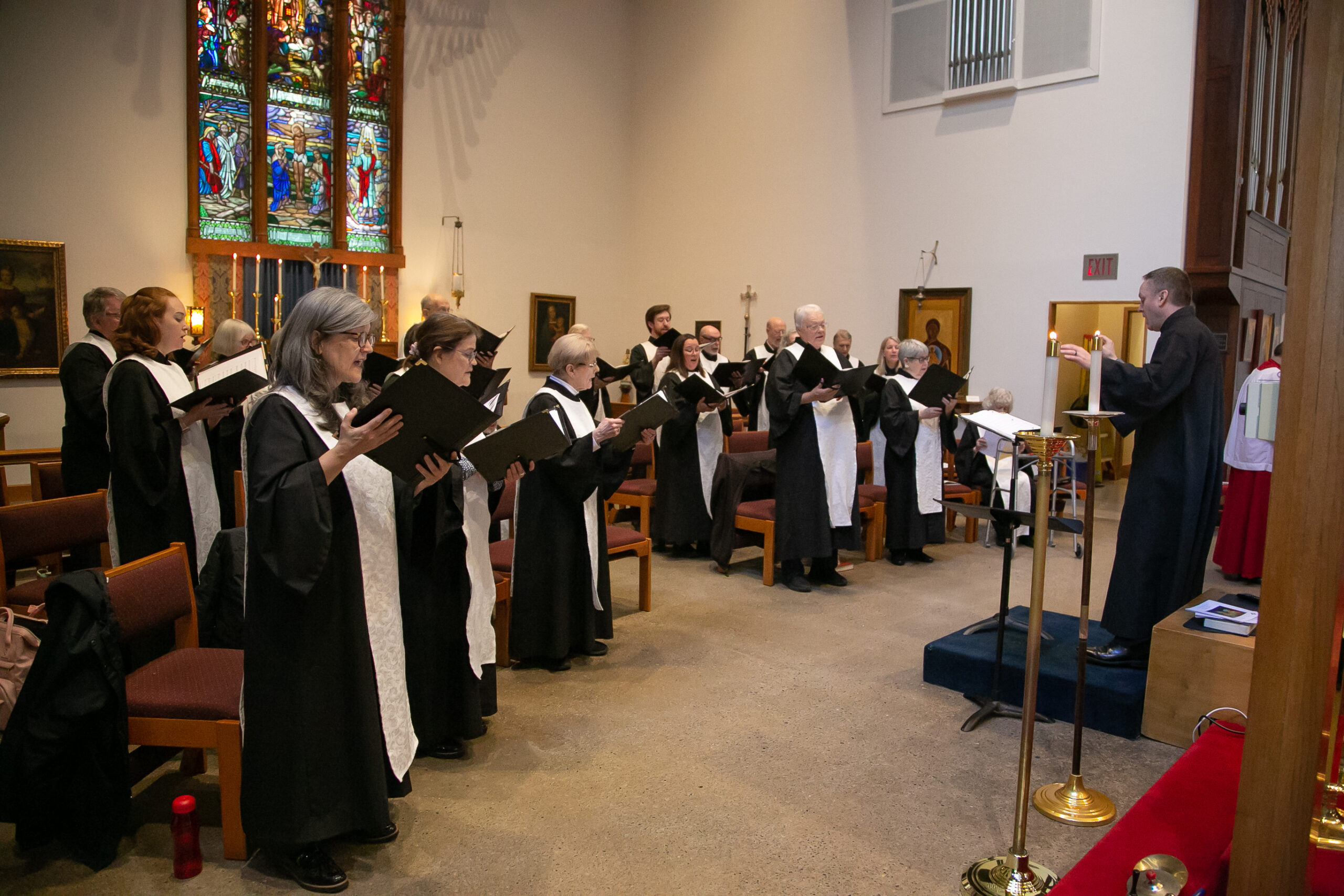Easter Vigil 2024
Event Gallery – Click Through (Kerry McQuaid, photographer)
Bishop Akiyama’s Sermon
The Rt. Rev. Diana D. Akiyama
March 30, 2024, Easter Vigil
St. John the Baptist Episcopal Church, Portland, OR
Matthew 28:1-10
The summer of my Middler year in seminary, I was doing my CPE at Emmanuel Hospital in Portland. I became friends with another CPE student who was studying to become a Lutheran pastor. We talked about a wide variety of topics and I enjoyed the easy way he would laugh, usually at his own expense.
One day, over lunch, we started talking about the Easter story. In a somewhat provocative manner, I asked, “Does it matter that the tomb was empty? Do you need the tomb to be empty to believe?” To my surprise, this mild-mannered friend became very serious and adamant. He retorted that of course, it needs to be empty. And off we went into a theological debate. I was surprised at his passion and what seemed almost like righteous indignation.
In my defense, I was being a typical – or perhaps we could say “classic” – Episcopalian. I wanted to poke and prod at assumptions and beliefs. I was curious about the depth of our faith … curious about what we really believe and why.
Today, if I were sitting across the table from myself in that conversation, I would have answered the provocative question this way: That’s the wrong question. It is not whether we need the tomb to be empty. The tomb WAS empty. So, what do we believe because of that?
And herein lies the mystery and power of our Christian story.
Tonight we tell, again, the story that is at the very center of all we believe as Christians.
Tonight, we enter into the story. We put ourselves beside Mary; we stand with her: grieving and sorrowful. The enormous stone that seals the tomb feels aggressive and hostile as it separates us from the body of our Lord.
If only we could see him one more time.
An angel of God appears with such divine power that it seems as though the entire earth is being shaken to dust. The light radiating from the angel is like flashing lightening; he is brighter than any earthly kind of brightness.
And the enormous stone is rolled back.
The guards faint from shock. The women do not faint. “Do not be afraid” the angel says. And they see for themselves that the tomb is empty.
The tomb is empty because Jesus has been raised from the dead. The women run to tell the disciples of this news and are greeted by Jesus along the way. As they fall down and worship him, they hear a second time, “Do not be afraid.”
These events take place “toward the dawn of the first day of the week.” As we journey into this story, where do we imagine the dawn breaking into the scene?
Imagine the sky begins to glow right as Jesus tells the women “Do not be afraid.”
Imagine this is when they not only feel his feet as they fall down to pray, but the early light reveals the contours of his face, the outline of his shoulders, his hands as he speaks to them. This is Jesus, the one and the same. This is their beloved Savior. This is He whom they feared they had lost forever.
He has risen from the dead. And the women did not faint. They were not afraid. They knew him by the sound of his voice and they embraced him with joy.
Are you with me? This is our story and we are there too.
Unlike the guards, we are like the women: we do not faint.
Unlike the disciples in hiding, we are with the women: we are not afraid.
We walk with the women into the tomb; it is empty.
We obey the angel and run to share the news.
We are laughing and crying; we need others to know what we have just experienced.
This story – the central story of our faith – would not be possible were it not for the women at the tomb. Somehow their sorrow and love overcame any fear for themselves. Their bond with Jesus was so strong they could not walk away even as they were confronted by an enormous stone sealing the tomb and imposing men standing guard.
The women did not faint in the presence of the angel. They did not run away. Had they done so, there would have been no witnesses to the empty tomb.
Our story could not have been told.
What kind of strength did it take to not faint at the sight of a mighty angel of God? What measure of courage? What depth of faith?
The women’s strength comes from profound love – a spiritual bond that could not be broken and which sustained them even in the depth of their grief.
We can see them in that dark morning, weeping and praying and wondering. What happens now? In the midst of all that has come to pass, they remain open to a sign, a word, a vision of what lies ahead in God’s divine plan.
We are with them and because of their love and faith, we take heart and do not faint.
Because they have eyes that see, we see – with them – Jesus in the early morning light.
Because they have ears to hear, we hear – with them – Jesus calming words, “Do not be afraid.”
Because they recognize their Lord and Savior and fall down to pray, we kneel down – with them – to pray and embrace His feet.
The piercing truth of the empty tomb could really only be witnessed by these women, Mary Magdalene and the other Mary. It was their openness, their profound love, their desire to sustain their connection to their Lord that made them strong.
We could say they witnessed the victory of the Cross as they gazed at the empty tomb and heeded the angel’s words. And the victory was not like in human combat, the victory was through knowing that the love Jesus lived and taught transforms all things. Through God’s power working in him all things are made new.
We, too, are made new in this story. Our fear is transformed in the light of Jesus’ resurrection. Death and our fear of its grip no longer imprisons us. We are freed from our self-imposed tombs of fear, hatred and self-loathing.
We have not been abandoned; we are not alone. Death is not the end.
Because they were unafraid; because they were open to God’s mysterious ways, the women heard it first: Christ is Risen.
This is our story of our faith.
May we come to know God with the same openness to His love.
May we remain open to hear and see Christ, even when all seems lost.
May we not faint in the presence of God’s miracles in our world.
And may we, like the women, run and tell others our story, the good news of Easter: Jesus Christ is Risen!
Alleluia!
